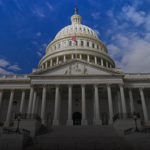Preview this deck
what is Mills proposed a solution to address the threats on behalf of liberty
Front
Active users
1
All-time users
1
Favorites
0
Last updated
4 months ago
Date created
May 4, 2024
Cards (17)
Unsectioned
(17 cards)
what is Mills proposed a solution to address the threats on behalf of liberty
Mill argued for the importance of individual liberties and the protection of minority rights.
He advocated for the concept of “harm principles” which states that individuals should be free to do whatever they please as long as they do not harm others.
Mill also believed in the importance of education and intellectual development to prevent the tyranny of the majority's need to educate and inform citizens.
what is Tocquevilles proposed a solution to address the threats on behalf of liberty.
Tocqueville believed in the importance of local self-government and decentralization of power as a way to counteract the threats to liberty posed by democracy.
He emphasizes the need for a strong civil society and voluntary association to foster a sense of community and social responsibility.
He advocated for an independent judiciary as a check on government power. ‘
Thomas Hobbes's state of nature theory.
What are his assumptions about humans in the state of nature?
Hobbes believes that humans are inherently selfish and are driven by self-interest. An example of their self-interest would be fear and desire
He also believes that life in the state of nature would be solitary, poor, nasty, brutish, and short”.
John Locke's State of Nature Theory
What are his assumptions about humans in the state of nature
Lock believes that humans are rational and moral beings, who are capable of cooperation.
He believes that life in the state of nature is peaceful and harmonious.
What are Hobbes Implications for understanding politics?
The a need for a strong central authority to maintain order and prevent chaos.
The need for social contract as a means of suurrending individual rights for security.
How does he depart from the idealism of Aristotle and Aquinas
Virtue vs Ethics: Aristotle and Aquinas both emphasize the importance of virtue and moral goodness in politics.
Aristotle argues that the best form of government is one that promotes the common good and cultivates virtuous citizens.
Similarly, Aquinas emphasizes the importance of natural law and moral principles in guiding political action.
In contrast, Macquevilla's political thought is often seen as amoral, as he prioritizes the pursuit of power over moral considerations.
What is the departure in idealism vs realism
Aristotle and Aquinas both advocate for a more idealistic view of politics, rooted in principles of justice, virtue, and the common good. They believe rulers should govern with wisdom and moral integrity, seeking to create a just and harmonious society.,
In contrast, Machiavies realism rejects the idealism of these thinkers, arguing that politics is inherently amoral and the rulers must be willing to use whatever means necessary to maintain power.
Compare and contrast the “state of nature” theories of Hobbes and Locke. What are the assumptions of each about humans in the state of nature, and the implications of these assumptions on their understanding of politics?
Introduction:
Defining the state of nature: The state of nature is a hypothetical scenario where there is no authority or government to enforce laws.
Briefly describe the theories of both Hobbes and Locke: Hobbes describes the state of nature as a place where there is no one to enforce laws, and resolve issues, and life is characterized by fear and insecurity.
. The two philosophers differ in their views on the state of nature because Hobbes sees it as a chaotic place, while Locke sees it as a place full of freedom and equality.
Machiavelli is often described as the first “realist” political thinker. What aspects of his ideas about politics are “realist”? In what ways do his ideas seem to depart from the “idealism” of Aristotle and/or Aquinas?
Introduction: Machiavelli is often described as the first “realist” political thinker due to his practical approach to understanding politics. Unlike thinkers such as Aristotle and Aquinas, Machiave ideas are grounded in the reality of human nature and the dynamics of power.
what is Mill's perspective on the nature of threats
Mill believes that the majority in a democratic society could potentially oppress and tyrannize the minority.
He was concerned about the “tyranny of the majority” and the potential for popular opinion to restrain individual freedom.
He saw the danger of the conformity and mediocrity that could result from a democratic society, limiting individuality and personal development.
What are locke implications for understanding politics?
The need for a limited government to protect nature's rights of life, liberty, and property
The need for a social contract as a mutual agreement between individuals and government,
what is Tocqueville perspective on the nature of threats
Tocqueville was concerned about the potential for centralization of power in a democratic society leading to the erosion of individual liberties.
He warned about the dangers of “soft despotism” where a powerful central government could gradually slip away freedoms and control the lives of its citizens.
He recognizes the potential for individualism and selfishness to threaten social cohesion and democracy itself.
compare and contrast - both Tocqueville and Mill.
Both Mill and Tocqueville were concerned about the threats to liberty posed by modern democracy, but they approached the issue from different perspectives.
Mill focused on the importance of individual freedom and minority rights, while Tocqueville emphasized the dangers of centralized power and the erosion of local autonomy.
Both thinkers proposed solutions that centered around the importance of education, civil society, and checks on the government's powers, but they differed in their emphasis on individualism versus community.
What is belief in power politics?
Machiavile's emphasis on power politics is another key aspect of his realism. He argues that the primary goal of the ruler should be to maintain and expand their power, even if it means acting ruthlessly or immorally. He states that it's “better to be feared than loved” because fear is a more reliable motivator for obedience.
What is Macqueiville's political thought on human nature?
Macqueville understands humans as inherently self-interested and prone to vice. He wrote in the prince that “men are ungrateful, fickle, simulators and deceivers, avoiders of danger and greedy for gain”. The realist view of human nature informs Macqueville's belief that rulers must be willing to use any means necessary to maintain power.
Comparison of Hobbes and Locke's state of nature theories
Hobbes:
Humans are inherently selfish and violent
In the state of nature, life is chaotic and brutal
Government is necessary to prevent anarchy and provide security.
Locke:
Humans are inherently rational moral beings.
Life is peaceful in the state of nature and cooperative
The government is necessary to protect individuals' rights and promote commonwealth
Both Mill and Tocqueville are concerned about the threats to liberty posed by modern democracy. What do they perceive to be the nature of those threats, and how do they respectively propose to address those threats on behalf of liberty?
Introduction: briefly introduce the topic of modern democracy and the threats to liberty as perceived by both Mill and Tocqueville
Modern democracy is a government system where people choose their leaders. Both John Stuart Mill and Alexis de Tocqueville worried that in democracies, the majority might limit the freedoms of individuals. They were concerned about how society's pressures and government control could threaten personal liberty. They believed that protecting individual rights was crucial to prevent this.



